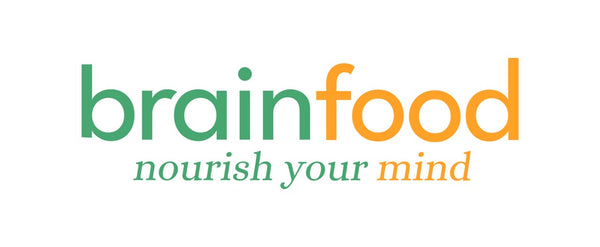
Self Love & the Science Behind Positive Affirmations
Share
It’s the season of love…Valentine's Day has recently passed, and you know the marketing drill: Red roses, candy hearts, and pizza pies shaped like the holiday. When we were kids, handing out Valentine’s cards or a simple treat was also a tradition. But what about as adults? Are candy grams and cardstock just for the kindergarten crushes and high school heartthrobs?
As we grow and mature, it may not be a love letter (although, that could work, too!), but let’s consider something like affirmations.
What are affirmations? PsychCentral defines them as activities that can help boost your confidence when you feel powerless while broadening your perspective, helping in both your personal and professional life. Self-affirmations, in particular, are positive statements that reinforce self love, stemming from the self-affirmation theory which suggests that people have a core need to see themselves as worthy and valuable.
Affirmations have become a popular trend over the years, helping to instill love and serenity equally during the more difficult times and when life feels like the easy button. This may just seem like fluffy words to say, but the practice has its roots in and is even backed by neuroscience.
For example, there’s MRI evidence suggesting that the brain’s reward circuitry (primarily that feel-good neurotransmitter we know and love, dopamine) is activated when affirmations are practiced.
So, what is the science behind it? In one article written by Katie Rapkoch, CHPC, she states, “When you repeat affirmations, you’re essentially feeding your brain new information. If done consistently and with intention, this new information can change how the brain processes the world and your reality. This shift is due to the brain’s incredible ability to adapt and change, known as neuroplasticity.”
Affirmations can help disrupt negative thinking habits and build new pathways for positive thoughts. When you repeat positive affirmations, your brain can begin to accept them as facts, encouraging positive actions to follow. This is why it’s really important for affirmations to align with beliefs you already hold about yourself, said Natalie Dattilo, a clinical psychologist with Brigham and Women’s Hospital in Boston.
What are some examples? A few good ones for the mind-body connection we’re emphasizing here at BrainFood:
- I am healthy and strong.
- I release tension and allow healing energy to flow through me.
- I nourish my body with healthy food choices.
- I love how strong my body is.
- I choose healthy, nutritious food.
- I am grateful for my body and all it does for me.
Beyond just ordinary neuroscience, also consider the affective domain, which explores how the brain processes emotions. Think of it like this: Imagine your brain as a musical conductor, and your emotions are all different instruments playing together in harmony. By practicing self-affirmations and positive thinking, you help the conductor stay in control, bringing harmony back to the orchestra of your mind.
For those of you interested in the science-backed research here, one study has linked affirmations to physical and mental gains in areas such as health, learning, and interpersonal relationships. A different study shows that affirmations can actually reduce our stress response. Researchers found that people who repeated positive affirmations had reduced neural activity in regions associated with threat processing and stress reactivity, leading to lower stress levels.
Just like learning to ride a bike or strum a guitar, repetition is crucial to the process. Whether you’re logging the affirmations in a journal or chanting them in front of the mirror, adding this to your morning ritual is a great way to get started. If your mornings are a little too action-packed already with little time to spare, here are some other ways you can incorporate them:
- Make affirmation posters or a vision board: Sometimes it's easier to visualize affirmations by viewing images, either written words or photography, that encapsulate your desires.
- Say affirmations while stretching, doing yoga, meditating, or exercising (bonus points for the mind-body emphasis!): As all forms of exercise can place us in a state of flow, thinking positive affirmations while engaging in physical activity really helps both your physical and mental gains.
- Post sticky note reminders: Typically posted on or beside a mirror where you can really visualize your best self, notes like "I am confident," "I am loved," and "I believe in myself" can go a long way.
- Start a gratitude journal: Keeping a journal of any kind has proven benefits, including focusing on the positive and reflecting on our goals. A gratitude journal takes this a step further by incorporating those "I am" statements.
- Sing lyric affirmations: If you're musically inclined (or just like to sing!), writing and singing affirmative lyrics help remind you that your dreams and aspirations are not that far out of reach.
